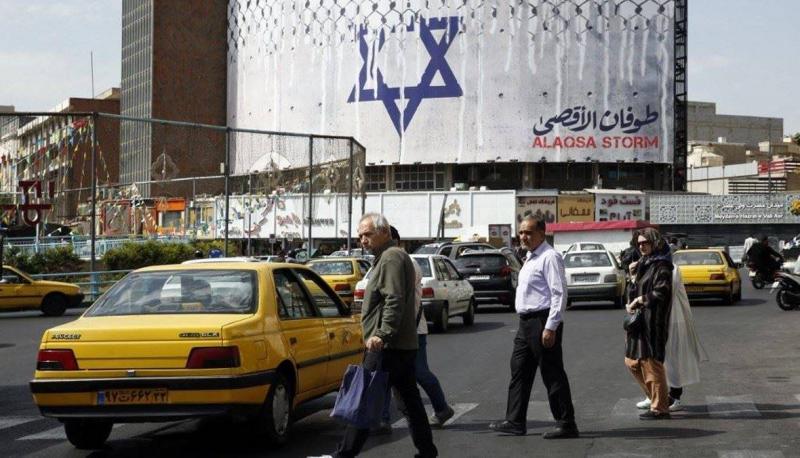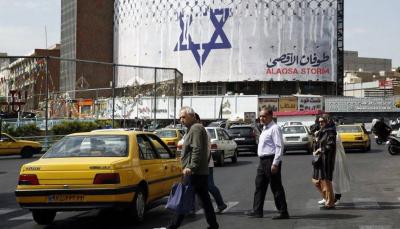The night of April 13-14 marked a significant moment in the region's memory. For a long time, newsrooms in newspapers, platforms, and televisions had not experienced such a fever. Perhaps it was since the night of March 19-20, 2003, when American missiles rained down on Baghdad, beginning the journey to overthrow Saddam Hussein's regime. It is no exaggeration to say that this new night was more exciting and dangerous. The previous night was clear and conclusive; the enormous American military machine would not ignite war to lose it. The new night was thrilling, perilous, and open to dire consequences. It revealed the fragility of the Middle East and its susceptibility to slipping into turmoil. Airspaces were closed, airports darkened, and planes soared. The people of the terrifying Middle East witnessed flocks of firebirds crossing the skies over maps, whether slowly or swiftly. In contrast, planes and missiles took off from here, there, and elsewhere to hunt the traveling birds, preventing them from reaching their intended targets. It was a long night, spent awake by leaders of states, military commanders, and militia "generals."
It was not the night of the "big strike," which had been whispered about in resistance circles for years. Its essence lay in a rain of missiles launched at Israel from Iranian territory, accompanied by strikes from lands that have now synthesized their keys. War's doors were not thrown wide open, nor was a great collapse inaugurated. It was a response less than a war project. It was a strike in the sense of its occurrence and Iran's direct involvement, not in terms of human losses. It resembled a reminder of the possibility of an Iranian direct attack on Israeli soil. It was neither the night of the great fire nor the crushing blow; however, it confirmed that a significant change had occurred in the previous rules of the game, opening the door to questioning "new rules of engagement."
In truth, the night began before darkness fell. When the occupant of the White House interrupted his vacation and returned to meet with his leadership team, the world had to stay awake. This is what happened. The current month began with an explosive message that makes understanding the new night impossible without referring back to it. On the first day, a daring player named Benjamin Netanyahu made a highly risky decision. He viewed a meeting of seven top officials from the "Revolutionary Guard" in Damascus as an unmissable opportunity. He did not stop at the presumed immunity of the Iranian consulate where they met. He destroyed the consulate along with those inside, disregarding its status as Iranian territory. It was a tough decision that closely resembles Donald Trump's decision to kill Qassem Soleimani near Baghdad Airport. Netanyahu's decision raised many questions: Is he tired of exchanging strikes with proxy fighters and decided to summon the main boxer to the ring? Did he choose to lure Iran into a face-to-face confrontation, away from shadow wars? Did he want to remind the West that the major existential threat to Israel comes from the "Guard" officers surrounding the Supreme Leader, rather than from Yahya Sinwar and his tunnels? Did he decide to risk igniting a great fire instead of getting preoccupied with a missile from Yemen or a drone from Iraq, or a diversionary war from Lebanon? Did he set a trap for Iran that would be difficult for it to evade?
It would have been hard for Iran not to respond to the attack on the consulate. Netanyahu challenged its image domestically and regionally and dared its prestige. Conversely, Iran does not want to enter into an open war with Israel, which America would not be able to remain outside of. Iranian officials deliberated over the situation for about two weeks, then the response came, introducing into the equation Iran's ability to directly attack Israel without justifying a war. Politicians and military officials in various places will be occupied with interpreting the meanings of the night of messages. Iran directed a message to Israel, but first directed a message to America, that it did not seek to escalate the war. On the night of missiles and drones, America sent a clear message to Israel: criticizing Netanyahu's behavior in Gaza does not mean severing ties with him or tolerating actions that threaten Israel's security. Moreover, America was not the only Western party that confronted Iranian missiles and drones; Britain and France also participated.
The American message transformed into a Western message, outlining limits for any Iranian attempt to contemplate an intense direct strike against Israel. Additionally, the night of missiles and drones conveyed a military message confirming the superiority of Western and Israeli technology compared to Iranian military technology. A message of this type must also be noteworthy for the Lebanese "Hezbollah."
On the political and diplomatic fronts, the night of missiles and drones demonstrated the existence of a stern Western umbrella over Israel's security in response to challenges targeting it, whether originating from Gaza or Tehran. It confirmed that the issue of ensuring Israel's security is not up for review in Western circles, regardless of the reservations and disappointments regarding Netanyahu's approach to Gaza and the peace process related to the two-state solution.
The question raised following the consulate attack was clear. Would Iran respond by targeting Israeli territory, and how and to what extent? The day after the recent Iranian night, a similar question arose: Would Israel respond to Iranian territories and how and to what extent? Washington supported Netanyahu without hesitation in confronting the Iranian attack. However, it quickly clarified that it did not endorse an Israeli response and would not participate in it if it occurred. The wait will be laden with questions: Can Netanyahu refrain from responding, and what about the hawks in his government? If he heeds the American advice, what price will he demand? Will he ask, in addition to military and economic support, for a free hand in Rafah, or will he seek to avoid quickly cementing the two-state solution as a mandatory path towards the future? Will he demand a reshaping of regional balances and relations? And will he seek a formula to halt a confrontation that has turned into a costly war of attrition in its seventh month, especially after claims that the night of drones and missiles was also the "night of the billion," costing Israel around a billion dollars?
We must wait to see what the warring parties deduced from the night of questions and messages of fire in the terrifying atmosphere of the Middle East.




